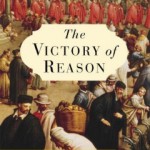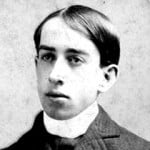
Rush Limbaugh interviewed Bill Buckley in the mid-nineties for his radio show. I remember listening, but now after more than a decade I recall only one comment. Discussing his faith, Buckley affirmed that, yes, he was a Christian. But that he thought perhaps he wasn’t a very good one. He wasn’t being coy. The thing that struck me was the humility of it.
Though his first book addressed the encroachments of atheism in academia, Buckley never shoved his faith in the face of others. The reason was simple enough. He claimed that was he wasn’t evangelistically inclined or theologically expert. But his faith informed his life and work nonetheless.
Limbaugh interviewed Buckley in part to promote his then-latest novel Brothers No More, a morally charged tale of love and hubris, faith and sin. And wasn’t the very act of standing athwart history yelling “Stop!” rooted not in fears of technology or progressive plots, but rather in his knowledge that modernism was rolling over values and obligations that transcended the passing of time, values that Buckley believed emanated from Christian truth?
But always with humility. Asked after the publication of his book Nearer, My God, about the steadfastness of his faith, why he never succumbed to doubt or skepticism, his answer was simple: “Grace.”
Characteristic of this amicable nature, he could on the one hand say that “the duel between Christianity and atheism is the most important in the world” (God and Man at Yale), and still affirm that Christians could welcome the company of atheists because “faith is a gift and that, therefore, there is no accounting for the bad fortune that has beset those who do not believe or have the good fortune that has befallen those who do” (The Jeweler’s Eye).
Now Buckley is with God, the same God that sparked his imagination, informed his thoughts, and peeked through his prose. And as a model for integrating belief into vocation, for folding faith into one’s work, I think perhaps that he was a very good Christian indeed.
(Originally published in the American Spectator.)












